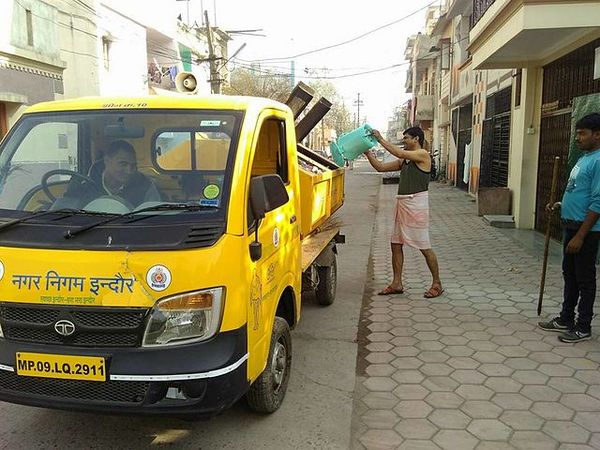Till around three years back Indore was one of the dirtiest cities in India.
Around May 2017 Madhya Pradesh Pollution Control Board came up with a ban on Plastic Carry Bags which banned the manufacture and use of single use plastic bags under 50 Microns.

There were 21 plastic bag manufacturing units in MP till 2016. After the announcements only 6 of those units continued with manufacture plastic bags while the rest shifted their production to manufacturing other plastic products. Over a period of the next one year, five of the six were closed down and one unit which continued was seized and locked, as reported by the TOI in their report on Mar 22 2018.
However, due to the influx of plastic bags from the cities of Gujarat and Noida, MP still struggled with banning the use of plastic in their cities, which made the ban largely ineffective.
Yet, in a span of two years, Indore managed to change from one of the biggest plastic waste generators in India to sending ZERO plastic to its landfills.
How did they manage it??
Three Words: REDUCE REUSE RECYCLE
In 2017, Indore generated upto 400 tonnes of plastic waste all of which was sent to the landfills, if not thrown on the streets.
Plastic collection centers were set up all across the city for the citizens to dispose off their plastic bags/containers. This plastic waste is now shredded into millions of tiny pieces and is bundled up and sent to cement plants where it is used as fuel for boilers.
Some of the plastic waste is being sent to Construction Companies which is being used to make roads. Till now around 50 tonnes of plastic waste has been used in making 45 kms stretch of internal roads using a technology which is quickly picking up.
The Government tied up with local plastic manufacturing units to recycle the plastic waste by making bins. Bins which are now distributed at subsidised rates to the citizens for segregation of their wet and dry waste.
What Indore also boasts of is a fantastic Garbage collection system with almost a 99% door-to-door garbage collection being done from every household.
The streets are cleaned thrice daily and watered once in a day (at night) to keep the dust levels low. Mechanical sweepers are used every alternate day on all the main roads.
Indore has around 800 Nagar Nigam waste collection trucks which are running between colonies and trenching grounds.
The Indore Municipal Corporation has set up plastic recycling plants which currently manages to recycle 50% of the plastic waste it generates and there are plans to set up more of such plants. Nearly 45 Tonnes of plastic waste is being recycled and reused per day.
The IMC has also tied up with 400 NGOs to spread awareness amongst the people on the importance of segregation and separation of wastes generated in households.
And all this was done without raiding shopkeepers and harassing the citizens.
Reducing, Recycling and Reusing plastic is important and it can be done. However it can be done without harassing the citizens of the state/city.
It has to be done by attacking the source of plastic generation and tackling the end disposal of the plastic waste, with awareness spread amongst the citizens.
Indore today stands as the CLEANEST CITY OF INDIA and my personal visits over the years have had me witnessing the change myself.
Perhaps Devendra Fadnavis should be taking a leaf out of Shivraj Chauhan’s book and figure out how cleanliness drives are conducted. After all they both belong to the same party.
That is, if the intentions are indeed to clean up the state and its cities. If the intentions are something else, then this will be just another flash in the pan to inconvenience the citizens, break the backs of the small industries and use it to profit the Corporates, like Beef Ban, like Demonetization, like Corporate Farming …. the list can go on.
This post was first published by the author on his Facebook timeline.
Disclaimer: Citizens will comply if alternatives are provided, but the onus of providing these alternatives lies with the Government and the Corporates who have to work hand in hand. The Government cannot shrug off its responsibility of providing cleaner infrastructure to the tax paying citizens by shifting the blame to civic sense of the citizens in lieu of lack of alternatives and waste management systems. #MaharashtraPlasticBan

